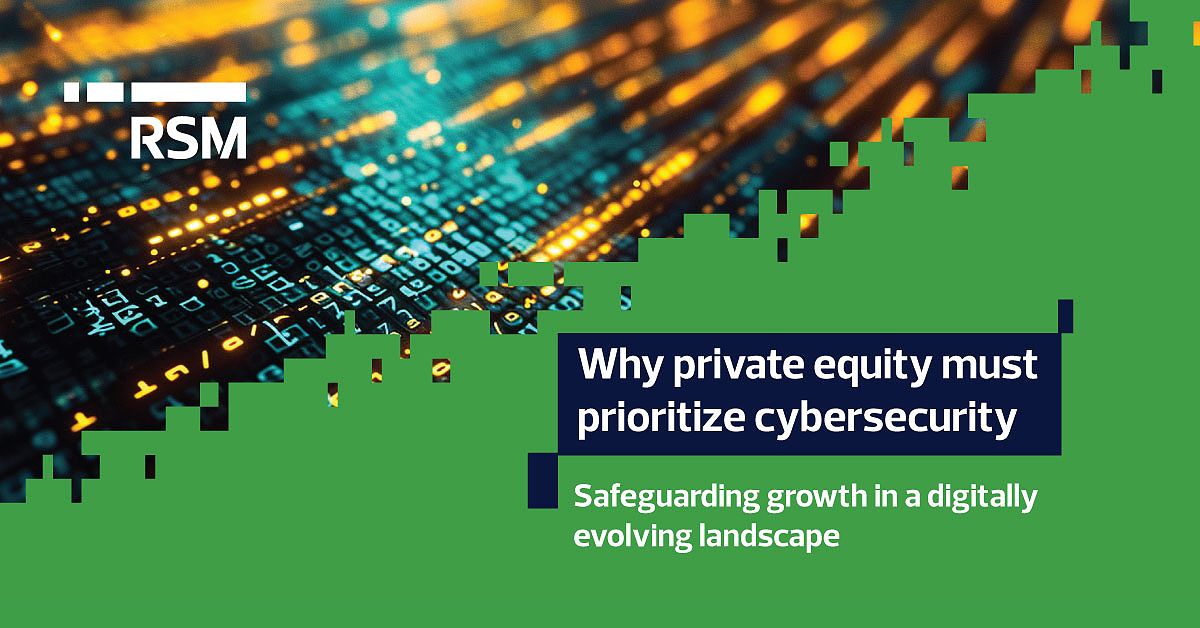Learn about the importance of safeguarding sensitive data in private equity investments and the key considerations for building a proactive cybersecurity strategy in healthcare, insurance, and technology sectors.
The Importance of Safeguarding Sensitive Data in Private Equity Investments
Private equity investments have become increasingly focused on high-growth sectors such as healthcare, insurance, and technology. With the digital transformation of these industries, protecting sensitive data has become a crucial aspect of these investments. As a cybersecurity consultant with 15 years of experience, I understand the significance of safeguarding valuable assets beyond financial considerations. In this article, we will explore the importance of building a proactive and resilient cybersecurity strategy within each of these sectors.
Let's start by examining the healthcare sector, which has become a breeding ground for data theft due to the digitization of patient records and the integration of cutting-edge technologies. While these advancements promise unprecedented advancements, they also bring forth new challenges, with cyber threats looming over patient confidentiality and operational integrity. Private equity funds must prioritize cybersecurity measures in the healthcare entities they invest in to secure health information privacy and maintain patient trust.
Next, we'll delve into the insurance sector, another stronghold for private equity. The digital revolution in insurance, driven by insurtech innovations, has streamlined the industry's business model. However, it has also created entry points for cyberattacks. Private equity firms must prioritize cybersecurity diligence to protect vast datasets containing sensitive customer information. A breach in the insurance sector not only jeopardizes client trust but also has significant financial and regulatory implications.
Lastly, let's explore the technology sector, where private equity investments often focus on disruptive innovations. While these groundbreaking technologies bring immense opportunities, they also expose companies to cyber risks. Whether it's a data breach compromising proprietary algorithms or a security flaw threatening user privacy, inadequate cybersecurity can have severe consequences. Private equity investors should actively ensure that the technology firms they support prioritize cybersecurity as an integral part of their business strategy.
Challenges in Cybersecurity for Private Equity
Navigating the cybersecurity landscape in private equity investments comes with its own set of challenges. Limited visibility into the cybersecurity postures of portfolio companies, the evolving nature of cyber threats, and varying degrees of cybersecurity maturity among target companies pose significant hurdles. While enterprise risk management practices have evolved over recent years, cybersecurity risks are not consistently reported. A lack of standardized practices across the private equity industry further complicates efforts to consistently apply leading cybersecurity frameworks. Private equity funds must navigate the growing complexity of industry-based compliance requirements while establishing a common framework to manage risk across their portfolios.
To manage cyber risks within a portfolio and drive investments, funds must establish a foundational expectation of maturity for a cybersecurity program. This includes continuously measuring and holding portfolio company leadership accountable for progress and outcomes against cybersecurity investments.
A Secure Future for Private Equity
As private equity continues to shape the future of investing, the role of cybersecurity cannot be overstated. It is not merely a protective measure; it is an enabler of sustainable growth and a guardian of investor trust. Private equity firms that prioritize cybersecurity in their investment strategies not only protect their financial interests but also contribute to the overall resilience of the sectors they influence.
In addition to making investments, private equity must be able to understand how funds provided to its portfolio companies are used to reduce risks within the cyber program. By working with trusted partners, private equity can establish, implement, and report on metrics or dashboards within its portfolios' cybersecurity program that showcase maturity development and its impact on risks over time.

